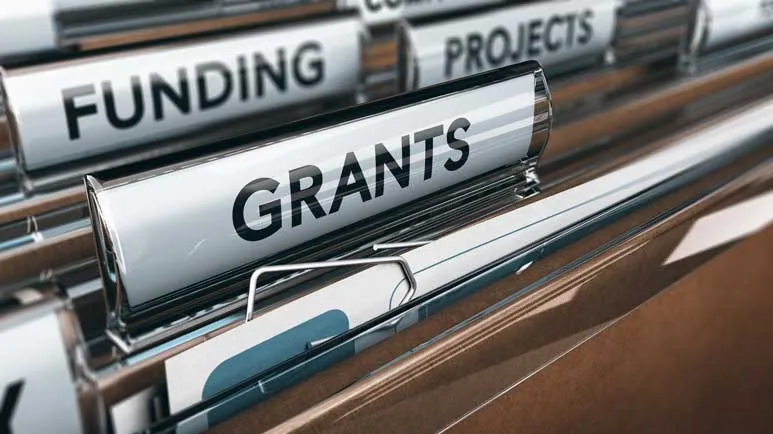by Dr. Joseph Mercola, Dr. Mercola’s Censored Library:
 Numerous experts have called on Congress to issue a subpoena to investigate this risky gain-of-function research.
Numerous experts have called on Congress to issue a subpoena to investigate this risky gain-of-function research.
STORY AT-A-GLANCE
- EcoHealth Alliance was a key participant in risky gain of function research on bat coronaviruses in Wuhan, China, which is now suspected of having played a role in the creation of SARS-CoV-2. That research was funded by Dr. Anthony Fauci at the National Institutes of Allergy and Infectious Diseases (NIAID)
TRUTH LIVES on at https://sgtreport.tv/
- Despite EcoHealth’s shady history and potential role in the COVID pandemic, Fauci, before leaving office, is now giving EcoHealth another $3.3 million in additional funding
- The NIAID has approved a $653,392 EcoHealth grant to analyze “the potential for future bat coronavirus emergence in Myanmar, Laos and Vietnam.” That sum is for the first year of a five-year project, so the total funding comes out to about $3.3 million
- In addition to collecting and cataloguing novel bat coronaviruses, EcoHealth will also “rapidly supply viral sequences and isolates for use in vaccine and therapeutic development, including ‘prototype pathogen’ vaccines”
- Iowa Sen. Joni Ernst has introduced the “Defund EcoHealth Alliance Act,” which specifies that “No funds authorized or appropriated by federal law may be made available for any purpose to EcoHealth Alliance Inc, including any subsidiaries and related organizations that are directly controlled by EcoHealth Alliance Inc.” This does not go far enough, however, as there are many others that would simply take their place. What we need is a ban on dual use, gain of function research
EcoHealth Alliance has received quite a bit of notoriety over the past three years as a key participant in risky gain of function research on bat coronaviruses in Wuhan, China, funded by Dr. Anthony Fauci at the National Institutes of Allergy and Infectious Diseases (NIAID).
EcoHealth Alliance president Peter Daszak was one of the 15 coauthors of the 2015 paper, “SARS-Like Cluster of Circulating Bat Coronavirus Pose Threat for Human Emergence,”1 which biowarfare expert Francis Boyle2 claims is “the smoking gun” that reveals the culprits responsible for the COVID pandemic.
EcoHealth is also linked to U.S.-funded biolabs in Ukraine by way of Nathan Wolfe, a World Economic Forum Young Global Leader graduate, who has been on EcoHealth’s editorial board since 2004. Wolf is the founder of Metabiota, now implicated in the operation of biolabs in Ukraine that Russia claims have been conducting secret bioweapons research.3
Many articles have been written detailing EcoHealth’s suspected role in the COVID pandemic, as well as the National Institutes of Health’s funding of its risky gain of function research, yet despite that, Fauci, before leaving office, is now giving EcoHealth another $3.3 million in additional funding.4 5 To understand just how outrageous this is,6 7 let’s review some of what we know about EcoHealth and its research history.
EcoHealth Has a Long History of Risky Research
In a March 31, 2022, investigative report,8 Vanity Fair contributor Katherine Eban reviewed the contents of more than 100,000 EcoHealth Alliance documents, including meeting minutes and internal emails and reports, most of which predate the COVID-19 pandemic, showing a disturbing reality of “murky grant agreements, flimsy NIH oversight and pursuit of government grants by pitching increasingly risky global research.”9
Records show EcoHealth received a $3.7 million NIAID grant in 2014 to study the risk of bat coronavirus emergence and the potential for outbreaks in human populations. Nearly $600,000 of that went to the Wuhan Institute of Virology (WIV), which was a key collaborator.
Warning bells started ringing in 2016, when EcoHealth failed to submit its annual progress report. NIAID threatened to withhold funds until the report was filed, and when Daszak finally submitted it, grant specialists found cause for concern.
According to the report, Daszak and his collaborators were seeking to create an infectious clone of the Middle East Respiratory Syndrome (MERS), a novel coronavirus with a 35% mortality rate. To that end, they constructed two chimeric coronaviruses that were similar to SARS, the virus responsible for Severe Acute Respiratory Syndrome.
The report prompted National Institutes of Health (NIH) grant specialists to ask whether the work should be subject to the federal moratorium on gain of function research on influenza, SARS and MERS viruses, which had been in place since October 2014.10
NIH and EcoHealth Circumvented Moratorium Rules
The moratorium had some loopholes, however, which Daszak exploited to continue his research. In a June 2016 response to the grant specialists, Daszak claimed the SARS-like chimeras they’d constructed were exempt from the moratorium because the viral strains used were not known to infect humans.
In his letter to the NIH, Daszak also referenced a 2015 paper written by Shi Zhengli and Ralph Baric, Ph.D., which detailed an experiment in which they mixed components of SARS-like viruses of different species to create a novel chimera capable of directly infecting human cells.
Incidentally, this research was funded by both the NIH and EcoHealth. According to Daszak, the chimera produced was less lethal than the original SARS, so his chimera would probably be less lethal as well.
However, the NIH grant specialists were far from reassured that his MERS chimera wouldn’t be dangerous, as Shi and Baric in that 2015 paper had noted the danger of such experiments, stressing that “scientific review panels may deem similar studies … too risky to pursue.”
Daszak then proposed a compromise. If any of the chimeric strains showed 10 times greater growth than a natural virus, he would immediately cease experiments, inform the NIAID program officer and the Institutional Biosafety Committee of the results, and participate in decision-making trees to decide how to move forward.
Read More @ takecontrol.substack.com



